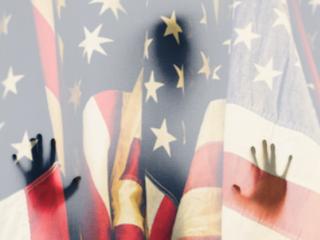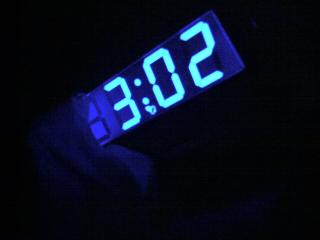A ghost story for the election season from listener Eric Van Vleet.More
Politics and History
Clinical psychologist Filip Bromberg says many young Swedes are suffering from serious stress and burnout, to the point where they’re abandoning seemingly good, high-paying jobs in search of more meaningful lifestyles.More
Eric Liu, founder of Citizen University, tells us why citizens are more powerful than they think and how he's trying to reinvigorate the culture of voting — by making it more fun.More
Historian Jeremi Suri places our present moment into a larger context — and uses the ups and downs of history to theorize what might lie ahead of us.More
Constitutional scholar and law professor Kim Wehle says democracy itself is on the ballot this year. What can you do about it? Vote.More
Kenyan literary scholar James Ogude believes "ubuntu" — a concept in which your sense of self is shaped by your relationships with other people — serves as a counterweight to the rampant individualism that’s so pervasive in contemporary cities.More
You could say that the work of nation-building is never really done. Haleema Shah has been thinking about that after a recent trip to a country close to her heart — Pakistan.More
Half the reason we buy so much new stuff is that our old stuff keeps breaking. Author Giles Slade says there's a reason for that — planned obsolescence.More
Do you ever have trouble sleeping? Steve Paulson does. And maybe you do too. How can something so simple be so hard — for so many people?More
The anthropologist David Graeber says “BS jobs” are an epidemic. Especially in that circle of hell known as middle management.More
"Before there was money, there was debt" says David Graeber in his book “Debt: The First 5,000 Years."More
In interviewing hundreds of women, writer and journalist Ada Calhoun learned something startling: that her insomnia, which felt so personal and private, might actually be generational and gendered.More
"Just Mercy" author Bryan Stevenson believes in creating incentives to reduce the country's prison population.More
At the heart of many Americans' fear of Black men is an ugly stereotype — the stereotype of the Black criminal. Historian Khalil Gibran Muhammad traces some of our current attitudes about race and crime to the late 19th century, when sociologists first began looking at crime statistics.More
The narrative that police brutality is a question of a few "bad apples" is precisely the wrong way to think about police brutality, says journalist Malcolm Gladwell. More
Journalist Malcolm Gladwell is famous for mining behavioral science for his work, and when it comes to better understanding the intersection of crime, violence, and policing, he turns over and over to criminologist Frank Zimring.More
Scholar and activist Ruth Wilson Gilmore says when you put mass incarceration in a larger context, it's pretty clear — you don't solve a problem by repeating the kind of behavior that brought you the problem in the first place.More
It's common in literary and historical accounts of powerful women to make them out to be villains — witches, demons, succubi, changelings — or erase them entirely. Historian Kara Cooney, author Madeline Miller, Religious scholar Serenity Young, and classics scholar Emily Wilson talk about why that might be.More


















